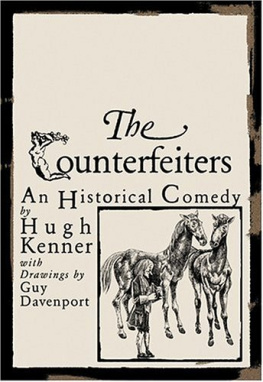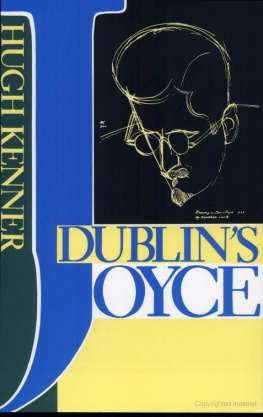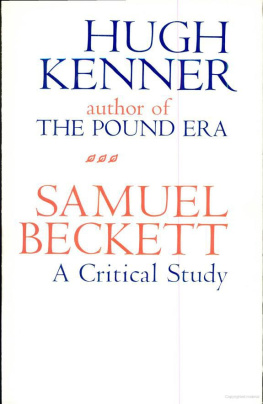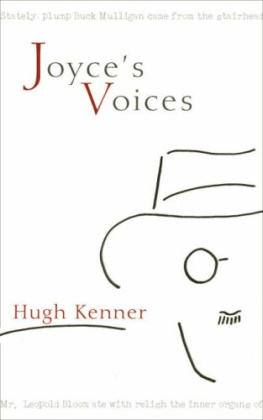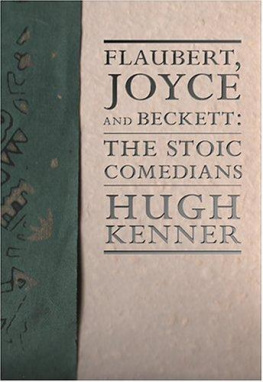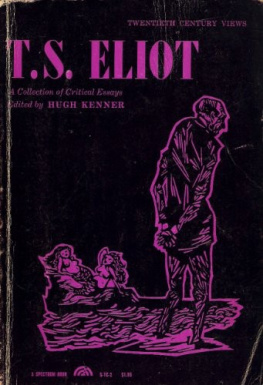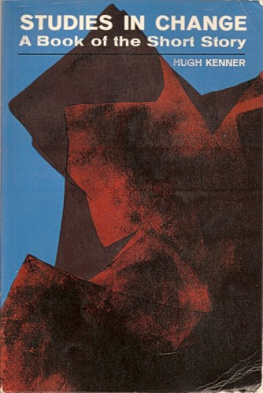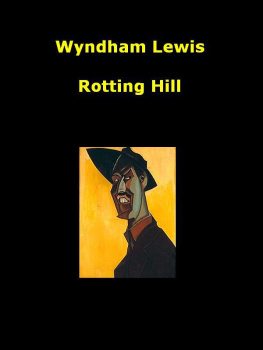Hugh Kenner - Wyndham Lewis
Here you can read online Hugh Kenner - Wyndham Lewis full text of the book (entire story) in english for free. Download pdf and epub, get meaning, cover and reviews about this ebook. year: 1954, publisher: New Directions Books, genre: Detective and thriller. Description of the work, (preface) as well as reviews are available. Best literature library LitArk.com created for fans of good reading and offers a wide selection of genres:
Romance novel
Science fiction
Adventure
Detective
Science
History
Home and family
Prose
Art
Politics
Computer
Non-fiction
Religion
Business
Children
Humor
Choose a favorite category and find really read worthwhile books. Enjoy immersion in the world of imagination, feel the emotions of the characters or learn something new for yourself, make an fascinating discovery.

- Book:Wyndham Lewis
- Author:
- Publisher:New Directions Books
- Genre:
- Year:1954
- Rating:5 / 5
- Favourites:Add to favourites
- Your mark:
- 100
- 1
- 2
- 3
- 4
- 5
Wyndham Lewis: summary, description and annotation
We offer to read an annotation, description, summary or preface (depends on what the author of the book "Wyndham Lewis" wrote himself). If you haven't found the necessary information about the book — write in the comments, we will try to find it.
Wyndham Lewis — read online for free the complete book (whole text) full work
Below is the text of the book, divided by pages. System saving the place of the last page read, allows you to conveniently read the book "Wyndham Lewis" online for free, without having to search again every time where you left off. Put a bookmark, and you can go to the page where you finished reading at any time.
Font size:
Interval:
Bookmark:
2 4 You have exceeded the maximum number of pixels allowed

BY HUGH KENNER
THE MAKERS OF MODERN LITERATURE
New Directions Books - Norfolk, Connecticut
-iii-
COPYRIGHT 1954 BY NEW DIRECTIONS
New Directions Books Are Published By James Laughlin
Library of Congress catalog card number: 54-9869
MANUFACTURED IN THE UNITED STATES OF AMERICA BY THE VAIL-BALLOU PRESS, INC., BINGHAMTON, N.Y.
-iv-
This book is for John Reid, preceptor and catalyst
-v-
|
I HAD BETTER MAKE IT CLEAR THAT THIS BOOK IS NOT A biography but an account of a career, and that the Wyndham Lewis that figures in it, not always resplendently, is a personality informing a series of books and paintings, not the London resident of the same name who created that personality and may be inadequately described as its business manager and amanuensis. The personality in question evinces such unusual acumen and "presence" that it has often been mistaken for a person, but because its principles of operation are dazzlingly, mechanically logical it lies open to a kind of discussion which would be both impertinent and inaccurate applied to a human being.
It is customary in writing on this subject to warn the reader against confusing the man Wyndham Lewis with yet another namesake, Mr. D. B. Wyndham Lewis, who has also written books, though he does not, so far as I know, paint pictures.
-vii-
I am grateful to John Reid for lengthy and indispensable correspondence, to Marvin Mudrick for the spur of aware conversation, and to Kenneth Millar for his patience in expunging flaws from the manuscript. I must also thank the editors of The Hudson Review for permission to reprint the portions of this book that appeared there. To Mr. Thomas H. Carter, who edited the Wyndham Lewis issue of Shenandoah, I owe a more complex debt; he not only encouraged me to make use of what I wrote for him, but freed me to write the book by shelving a somewhat different project of his own.
The self-portrait of Wyndham Lewis is reproduced by permission of the artist and the Manchester City Art Gallery.
-- HUGH KENNER
Santa Barbara College, Santa Barbara, California
-viii-
| |
| |
| |
| |
| |
| |
| |
| |
| |
| |
|
-ix-
|
It may have been because this very complex and sensitive man was so responsive to the claims of violence--because he had made it so much his own--that he understood its opposite as well as he did. The notion of domination, and of the struggle for domination, obsessed him. But he was also obsessed by the refinements of the intellect which cannot co-exist with the struggle for existence.
-- Wyndham Lewis on Nietzsche
-xi-
|
-- The Childermass
" WYNDHAM LEWIS, THE MAN WHO WAS WRONG ABOUT EVERYthing except the superiority of live mind to dead mind; for which basic verity God bless his holy name."--thus Ezra Pound's summary appraisal of his long-time friend and associate. He is one of the great painters of the twentieth century--in the perhaps unguarded judgment of Walter Sickert "the greatest portraitist who ever lived." He has written The Revenge for Love, a twentieth-century classic; Tarr, "the first book of an epoch," a novel of great sporadic power; and Time and Western Man, one of the key books for the student of modern thought. Yet so much achievement seems less than that of several other contemporaries, and less than would seem to be promised by a career of ceaseless intellectual activity that since 1909 has spawned --almost as by-products--forty books and countless pictures. It is not wholly because of boycott (though he has
-xiii-
been boycotted steadily by one clique or another ever since he first became known) that his name does not come as readily to the reviewer's pen as, say, that of Eliot, who once called him "the most fascinating personality of our time." It is because, perhaps, his career itself has more meaning--though it doesn't come to more--than any of its manifestations. It even holds in thrall his undoubtable successes: for all their vitality ("so great a realist that he makes you shiver" said Ford Madox Ford of the author of Tarr) they don't so much possess their own life as bring to unusual articulation at critical points the continuing drama of Wyndham Lewis's war with Time and Self--as significant an assault on the nant as that of Swift.
"Not a commentator but a protagonist," Pound wrote of him nearly four decades ago. "He is a man at war.... You cannot be as intelligent, in that sort of way, without being prey to the furies."
No historian's model of the age of Joyce, Eliot, and Pound is intelligible without Lewis in it. More than any of these men, whose craft functioned with comparative freedom within the time, Lewis reveals the time's nature. He does this as much by disregarding nearly everything the artist is officially supposed to undertake, as by succeeding--so far as he has succeeded--in what he chose to do instead. Afoot in the void, his savagely energetic intelligence hunting down chimerical images of itself not only enacts in a dream-play the suicide of the West, but demonstrates the ubiquity of the illusions into which more fortunate intelligences have from time to time barely succeeded in not being betrayed.
It hasn't been safe for men of letters to think since the
-xiv-
seventeenth century, when ideas were substituted for things as the accredited materials of thought. In the teeth of the respected view that the artist expresses the emotional equivalent of whatever thought happens to be going on, Lewis has denounced a conspiracy against the mind and asserted that when official thinking is in bad shape the artist must do his own. It is with his creative mind that he has thought, however: hence the bustle with which he has reared so many scaffoldings. If Lewis has stood for intelligence rather than intuition, for creation rather than craftsmanship, for Western Man rather than his daemon the Zeitgeist, without ever personifying any of these things quite convincingly, yet even in illustrating the radical incapacity of will alone to do the work of patience, he has discredited the spuriousness we meticulously reward.
Font size:
Interval:
Bookmark:
Similar books «Wyndham Lewis»
Look at similar books to Wyndham Lewis. We have selected literature similar in name and meaning in the hope of providing readers with more options to find new, interesting, not yet read works.
Discussion, reviews of the book Wyndham Lewis and just readers' own opinions. Leave your comments, write what you think about the work, its meaning or the main characters. Specify what exactly you liked and what you didn't like, and why you think so.

